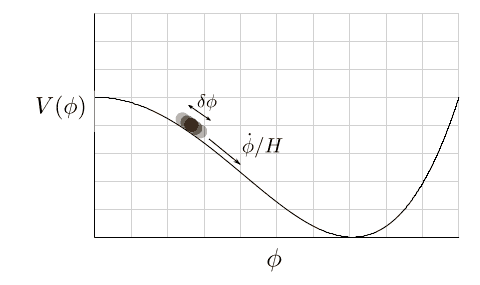Wikipedia's article on inflation says
Although new inflation is classically rolling down the potential, quantum fluctuations can sometimes lift it to previous levels. These regions in which the inflaton fluctuates upwards expand much faster than regions in which the inflaton has a lower potential energy, and tend to dominate in terms of physical volume.
But from Sean Carroll’s article,
Eternal inflation is a different story. The idea there is that the inflaton field slowly rolls down its potential during inflation, except that quantum fluctuations will occasionally poke the field to go higher rather than lower. When that happens, space expands faster and inflation continues forever. This story relies on the idea that the “fluctuations” are actual events happening in real time, even in the absence of measurement and decoherence. And we’re saying that none of that is true. The field is essentially in a pure state, and simply rolls down its potential
So, I asked a friend of mine who knows QFT and he said
I never liked the concept of quantum fluctuations, especially when it comes to cosmology. In QFT, the fields always roll down to the exact minimum of the potential. It doesn't fluctuate in any meaningful sense. But the potential is the quantum mechanical one, not the classical one. The quote in the wikipedia may be a vague way to say that the classical potential acquires quantum corrections. Whether that picture is useful or not is beyond me.”
Is the interpretation of quantum fluctuation in Wikipedia correct from the point of view of QFT? Or does the inflaton field just simply roll down its potential without any effects from quantum fluctuation?

